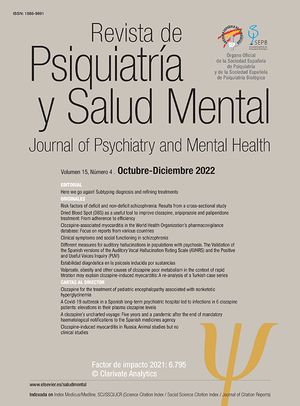Coronavirus disease 2019 (COVID-19) is an infectious disorder that may cause a vast array of injuries to several organs and tissues. Still, it may also generate medium- and long-term structural, metabolic, and functional consequences, a syndrome conventionally known as “long-COVID.”1 Among the various disturbances that may persist up to 1 year after recovering from an acute SARS-CoV-2 (severe acute respiratory syndrome coronavirus 2) infection, fatigue, insomnia and brain fog (as synonymous of clouding of consciousness) have been recently described by Colizzi et al.2 Therefore, we carried out an infodemiological analysis to further define the burden of these adverse functional consequences presumably caused by the COVID-19 pandemic in two representative countries.
We accessed Google Trends (Google Inc. Mountain View, CA, US) with the medical keywords “fatigue,” “insomnia,” and “brain fog” (with its analogous search term “clouding of consciousness”), setting geographical location to either “United States” (US) or “United Kingdom” (UK) to enable a more accurate capture of trends, within the last 5 years (i.e., from July 2017 to July 2022). The weekly Google Trends score for these three terms, which reflects their Web popularity in the two countries, was downloaded into a Microsoft Excel file (Microsoft, Redmond, WA, United States). The search period was divided into two parts, “pre-COVID” (from July 2017 to February 2020) and COVID-19 (from March 2020 to July 2022), respectively. The weekly Google Trends score data were reported as median and interquartile range (IQR), whilst their differences in the two separate countries (US and UK) were compared using Mann–Whitney test (Analyse-it Software Ltd, Leeds, UK). The study was conducted in accordance with the Declaration of Helsinki under the terms of relevant local legislation. This analysis was based on electronic searches in an open and publicly available repository (Google Trends), and thus no informed consent or Ethical Committee approval were necessary.
The results of this infodemiological analysis are summarized in Fig. 1. During the COVID-19 pandemic, the volume of Google searches for “fatigue” significantly increased by 9.2% in the US (83 [IQR, 77–88]) vs. 76 [IQR, 72–79]; p<0.001) and by 6.7% in the UK (80 [IQR, 74–86] vs. 75 [IQR, 68–80]; p<0.001). The volume of Google searches for “insomnia” also significantly increased by 7.2% in the US (74 [IQR, 70–77] vs. 69 [IQR, 65–73]; p<0.001), but remained unchanged in the UK (56 [IQR, 51–62] vs. 57 [IQR, 52–62]; p=0.433). A dramatic increase in the volume of Google searches for “brain fog” was instead observed in both countries during the COVID-19 pandemic, specifically by 96.3% in the US (53 [IQR, 38–61]; p<0.001) and by 115.8% in the UK (41 [IQR, 30–52] vs. 19 [IQR, 17–22]; p<0.001), respectively.
There are some obvious shortcomings in his study. First, the variation of the volume searches for the terms used cannot be solely associated with COVID-19, since they may have also changed for other clinical reasons. Moreover, the investigated symptoms are not only present in long-COVID, but may also appear during the acute phase of the disease, so that our analysis embraces the entire clinical course of this infectious disease. Nonetheless, the results of our analysis reveal that the volume of Google searches for symptoms of long-COVID like fatigue and, especially, brain fog, has significantly increased during the COVID-19 pandemic both in the US and UK, thus likely mirroring an increased burden of functional consequences of COVID-19 in the general population. This evidence implies that the governments and healthcare systems shall engage in proactive efforts to manage the large burden of adverse functional consequences, especially impaired consciousness, that patients may develop during or after recovering from COVID-19.









